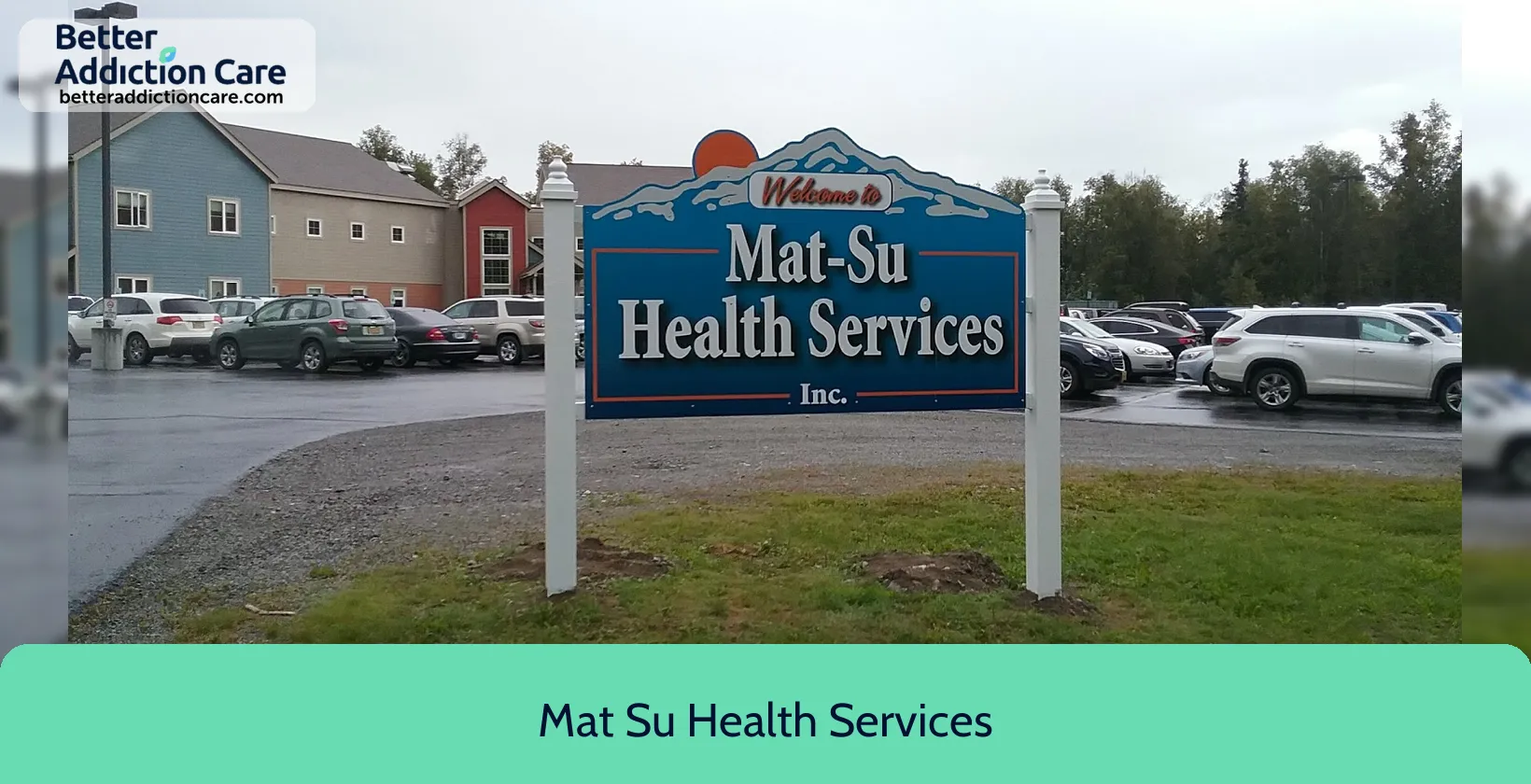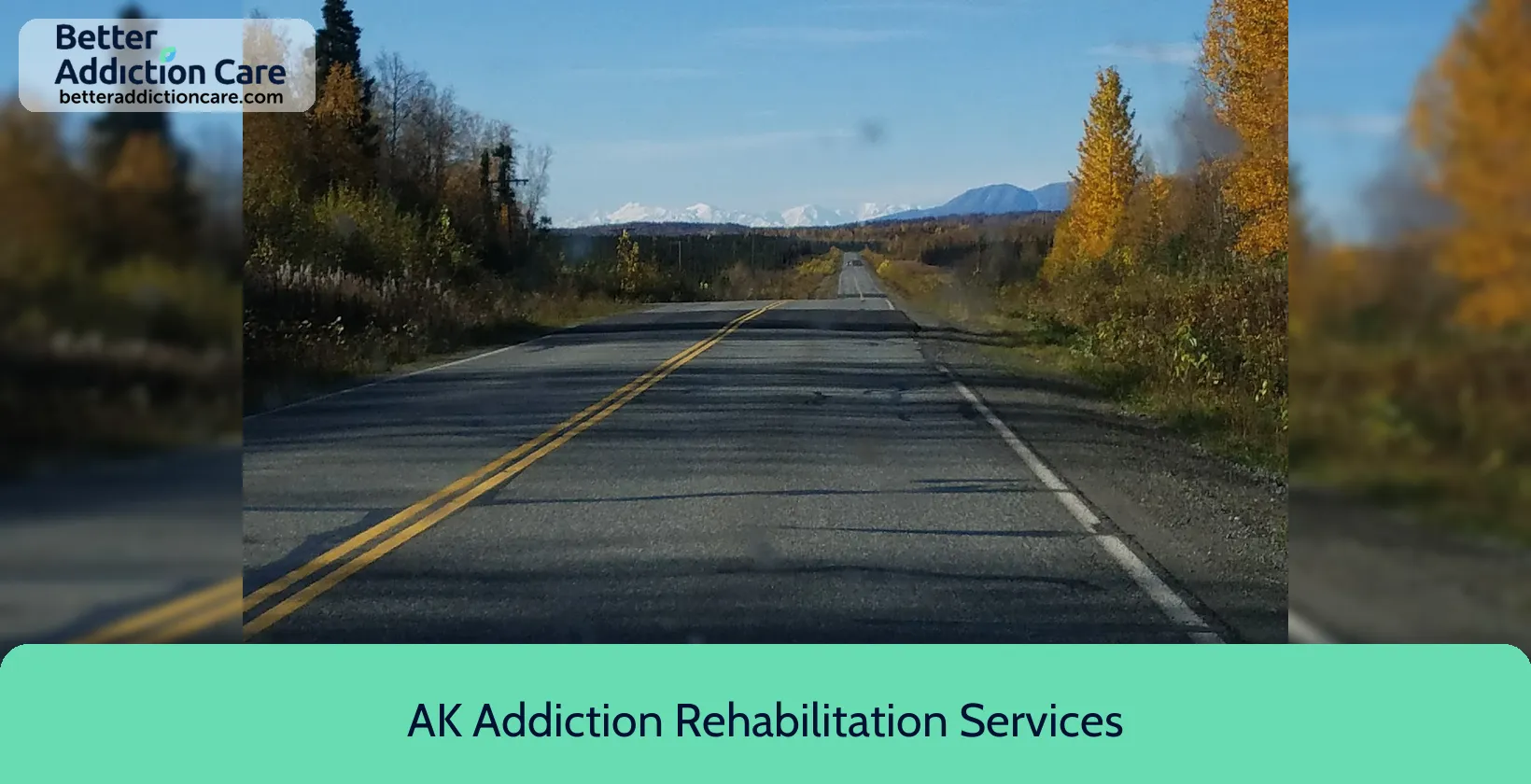Alaska Family Services - Behavioral Health Treatment Center

Overview
Alaska Family Services - Behavioral Health Treatment Center is a substance abuse treatment center for people seeking treatment near Matanuska Susitna County. As part of their treatment modalities for recovery, Alaska Family Services - Behavioral Health Treatment Center provides individual psychotherapy, couples/family therapy, and cognitive behavioral therapy during treatment. Alaska Family Services - Behavioral Health Treatment Center is located in Wasilla, Alaska, accepting cash or self-payment for treatment.
Alaska Family Services - Behavioral Health Treatment Center at a Glance
Payment Options
- Cash or self-payment
- Medicaid
- State-financed health insurance plan other than Medicaid
- Private health insurance
- State mental health agency (or equivalent) funds
Assessments
- Screening for tobacco use
- Comprehensive mental health assessment
- Comprehensive substance use assessment
- Interim services for clients
- Outreach to persons in the community
Age Groups
- Young adults
- Children/adolescents
- Adults
- Seniors
Ancillary Services
- Intensive case management
- Case management service
- Court-ordered outpatient treatment
- Education services
- Family psychoeducation
Highlights About Alaska Family Services - Behavioral Health Treatment Center
7.12/10
With an overall rating of 7.12/10, this facility has following balanced range of services. Alcohol Rehabilitation: 8.00/10, Drug Rehab and Detox: 6.00/10, Insurance and Payments: 6.53/10, Treatment Options: 7.94/10.-
Alcohol Rehabilitation 8.00
-
Treatment Options 7.94
-
Insurance and Payments 6.53
-
Drug Rehab and Detox 6.00
Accreditations
State mental health department:
State mental health department accreditation refers to the process of evaluating and certifying the quality and standards of a state's mental health department, ensuring that it provides high-quality services and meets specific criteria for mental health care. The accreditation process is performed by a third-party organization and helps to improve the overall care and treatment of individuals with mental health conditions.
Council on Accreditation (COA):
The Council on Accreditation (COA) is a non-profit that provides accreditation to human services organizations to ensure they meet high standards in service delivery. The accreditation process involves evaluating the organization's policies, practices, and services to meet specific standards.
SAMHSA certification for opioid treatment program (OTP):
SAMHSA's Opioid Treatment Programs (OTPs) accreditation is a rigorous recognition process that signifies an OTP's commitment to providing high-quality care for individuals dealing with opioid use disorders. It assures patients, families, and the community that the program adheres to evidence-based practices, employs qualified staff, and maintains a safe treatment environment. This accreditation is a symbol of quality and accountability, offering confidence in the program's ability to support individuals on their path to recovery from opioid addiction.
State department of health:

State Licenses, issued by government agencies, authorize rehabilitation organizations to legally operate within designated geographical areas. The specific licenses required for operation are typically determined by both the nature of the rehabilitation program provided by the facility and its physical location.
Treatment At Alaska Family Services - Behavioral Health Treatment Center
Treatment Conditions
- Mental health treatment
- Alcoholism
- Substance use treatment
- Co-occurring Disorders
Care Levels
- Outpatient
- Intensive outpatient treatment
- Regular outpatient treatment
- Aftercare
Treatment Modalities
- Individual psychotherapy
- Couples/family therapy
- Cognitive behavioral therapy
- Dialectical behavior therapy
- Integrated Mental and Substance Use Disorder treatment
Ancillary Services
Languages
- Sign language services for the deaf and hard of hearing
Additional Services
- Pharmacotherapies administered during treatment
- Housing services
- Drug or alcohol urine screening
Special Programs
- Clients with co-occurring mental and substance use disorders
- Criminal justice (other than DUI/DWI)/Forensic clients
- Clients who have experienced trauma
Get Help Now
Common Questions About Alaska Family Services - Behavioral Health Treatment Center
Contact Information
Other Facilities in Wasilla

6.65

6.68

6.80

7.14

6.77

6.96
DISCLAIMER: The facility name, logo and brand are the property and registered trademarks of AK Addiction Rehabilitation Services, and are being used for identification and informational purposes only. Use of these names, logos and brands shall not imply endorsement. BetterAddictionCare.com is not affiliated with or sponsored by AK Addiction Rehabilitation Services.
